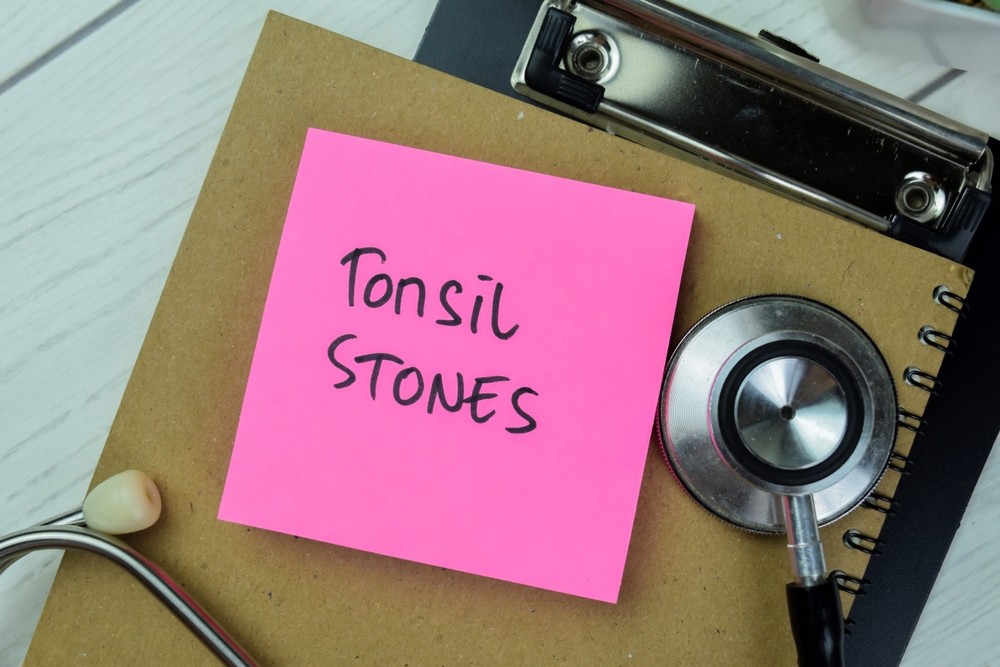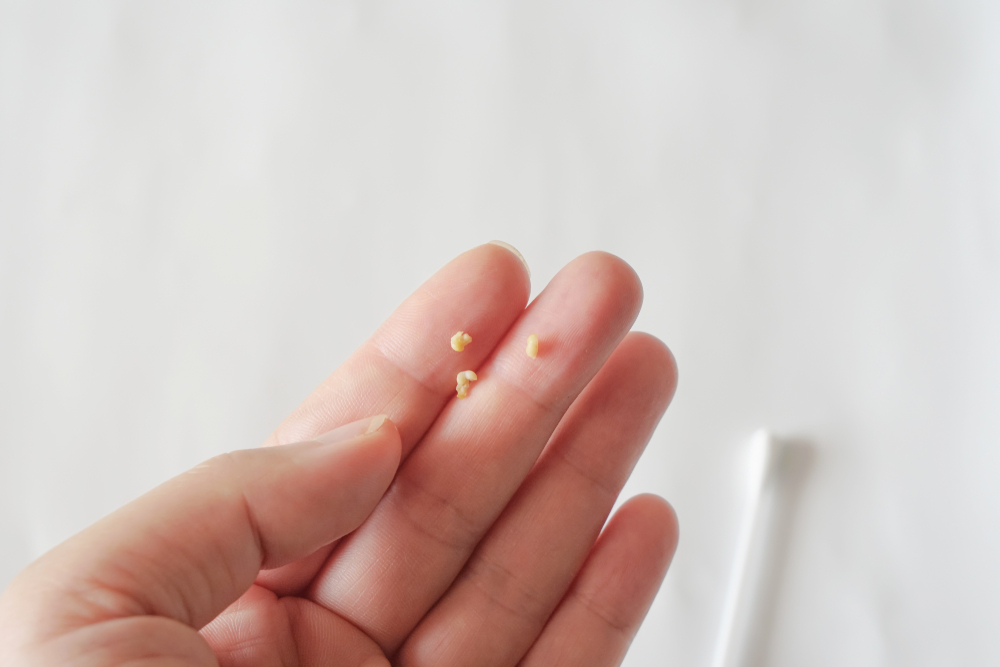Have you ever found yourself staring into the mirror, mouth wide open, trying to get a better look at those pesky, white growths lurking in the back of your throat? If so, you’re not alone. Tonsil stones, also known as tonsilloliths, are a surprisingly common condition that affects many people, often without them even realizing it.
While not typically a serious health concern, tonsil stones can be a major source of discomfort, leading to symptoms like persistent bad breath, sore throat, and even difficulty swallowing. Fortunately, there are effective ways to diagnose, treat, and even prevent these unwelcome intruders from taking up residence in your mouth.

In this comprehensive guide, we’ll dive deep into the world of tonsil stones, exploring their causes, symptoms, and the latest Harvard-approved treatments and preventive measures. By the end, you’ll be armed with the knowledge and tools you need to take control of your oral health and bid farewell to the scourge of tonsil stones for good.
Tonsil stones are small, whitish-yellow growths that can develop in the crevices, or crypts, of your tonsils. These pimple-like formations occur when food particles, dead cells, and bacteria become trapped and harden over time, creating a stone-like structure.
Tonsil stones are most commonly found in children and young adults, but they can affect people of all ages. The tendency to develop these growths may also be influenced by factors like genetics, anatomy, and overall oral hygiene.
Identifying the Symptoms of Tonsil Stones

While some people may have tonsil stones without even realizing it, these growths can also lead to a variety of unpleasant symptoms. Some of the most common signs that you may be dealing with tonsil stones include:
- Persistent bad breath (halitosis)
- Sore throat or difficulty swallowing
- Metallic taste in the mouth
- Swollen or inflamed tonsils
- Ear pain or pressure
- Persistent coughing
- Recurrent tonsil infections or tonsillitis
If you’re experiencing any of these symptoms, it’s important to consult with a healthcare professional for a proper diagnosis and appropriate treatment.
Diagnosing Tonsil Stones: What to Expect

Diagnosing tonsil stones is a relatively straightforward process. Your healthcare provider will typically begin with a physical examination of your throat, looking for the telltale white or yellow growths on your tonsils. They may also ask about your medical history and any symptoms you’ve been experiencing.
In some cases, your doctor may recommend additional tests, such as imaging studies or a throat culture, to rule out other possible conditions and confirm the presence of tonsil stones. These additional tests can provide a more detailed view of the stones and help guide the most effective treatment approach.
Treating Tonsil Stones: Exploring Your Options
If your tonsil stones are causing discomfort or persistent bad breath, there are several treatment options to consider. These range from simple, at-home remedies to more advanced medical interventions:
Self-Removal: For mild cases, you may be able to gently remove the tonsil stones yourself using a cotton swab or by gargling with salt water. However, it’s important to avoid using any sharp or pointed objects, as this could damage your tonsils.
Medicated Gargles: Your doctor may prescribe antimicrobial mouthwashes or gargles to help reduce the buildup of bacteria and prevent the formation of new tonsil stones.
Oral Irrigators: These specialized devices can be used to flush out the tonsil crypts and dislodge any trapped debris, effectively clearing away tonsil stones.
Surgical Removal: In severe or recurrent cases, your healthcare provider may recommend a tonsillectomy, which involves the surgical removal of the tonsils. This is typically reserved for situations where tonsil stones are causing persistent infections or significant discomfort.
Preventing Tonsil Stones: Strategies for Long-Term Success

While it may not be possible to completely prevent the formation of tonsil stones, there are several proactive steps you can take to minimize their occurrence:
Maintain Good Oral Hygiene: Regularly brushing your teeth, flossing, and using mouthwash can help control the bacteria in your mouth and reduce the buildup of debris in your tonsils.
Stay Hydrated: Drinking plenty of water throughout the day can help keep your mouth and throat moisturized, making it less likely for food particles and bacteria to get trapped in your tonsils.
Avoid Tobacco and Alcohol: Smoking and excessive alcohol consumption can irritate the tonsils and contribute to the development of tonsil stones.
Regularly Visit Your Dentist: Routine dental check-ups can help identify any early signs of tonsil stone formation and provide guidance on preventive measures.
Tonsil stones may seem like a minor inconvenience, but they can have a significant impact on your overall health and quality of life. By understanding the causes, symptoms, and effective treatment options, you can take control of your oral health and bid farewell to the discomfort and embarrassment of persistent bad breath and other tonsil stone-related issues.
Remember, if you’re experiencing any persistent or concerning symptoms, it’s always best to consult with a healthcare professional. With the right guidance and a proactive approach to prevention, you can keep those pesky tonsil stones at bay and enjoy a healthy, confident smile.


